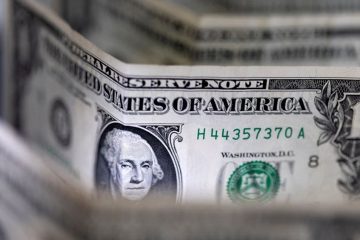Trump advisors want to reduce or do away with bank regulations

The Trump transition team has initiated discussions on potential strategies to significantly reduce, consolidate, or possibly abolish the leading banking regulators in Washington. In recent discussions with prospective candidates for leadership positions in banking regulatory bodies, advisers to Trump and officials from his newly established Department of Government Efficiency have inquired, among other things, about the feasibility of the president-elect eliminating the Federal Deposit Insurance Corporation, according to sources familiar with the situation.
Advisers have inquired of the nominees being evaluated for the FDIC and the Office of the Comptroller of the Currency regarding the potential absorption of deposit insurance into the Treasury Department, according to several sources. Eliminating the FDIC or any similar agency would necessitate action from Congress. Although previous presidents have undertaken efforts to reorganize and rebrand various departments, it is noteworthy that Washington has not historically closed any significant cabinet-level agency and has infrequently shuttered other entities such as the FDIC.
Bank executives exhibit a sense of optimism. President-elect Donald Trump is poised to relax numerous regulations concerning capital buffers and consumer safeguards, alongside reducing oversight of industry consolidation. However, the sanctity of FDIC deposit insurance is widely acknowledged. Any action that jeopardizes the perception of deposit insurance could swiftly reverberate across the banking sector and, in times of crisis, exacerbate customer anxieties.
In the wake of multiple bank failures last year, a wave of concern swept through customers regarding the security of their deposits at smaller financial institutions. A significant number sought refuge in the largest financial institutions, regarded as too critical to the economy for the government to allow their collapse. In the intervening period, financial institutions have advocated for expanded deposit insurance measures to ensure the competitiveness of smaller banks.
The conversations highlight the radical measures Trump may pursue in his efforts to reduce the scale of government and diminish regulatory oversight, particularly concerning the heavily regulated financial sector. Individuals vying for positions as bank regulators have engaged in discussions with Treasury Secretary nominee Scott Bessent and the newly established DOGE department, an external advisory group co-chaired by Elon Musk and Vivek Ramaswamy, according to sources.
Last month, Musk advocated for the dissolution of the Consumer Financial Protection Bureau, an agency that has long been a target of Republican disdain. Musk remarked, “The proliferation of duplicative regulatory agencies is excessive.” Advisers to Trump and prospective nominees have engaged in discussions regarding the potential consolidation or reorganization of the primary federal banking regulators: the FDIC, OCC, and the Federal Reserve, according to sources.
Project 2025, a policy blueprint crafted by the Heritage Foundation in collaboration with former officials from the Trump administration, advocates for the consolidation of the FDIC, OCC, and the nonmonetary policy segments of the Federal Reserve, in addition to the National Credit Union Administration. Trump has asserted that he was not involved with Project 2025. Rep. Andy Barr, a Republican from Kentucky and an ally of Trump on the House Financial Services Committee, has expressed support for the initiative to dismantle or significantly modify the CFPB, advocating for the removal of what he characterizes as “one-size-fits-all” regulation for banks.
Banks exhibit a complex dynamic regarding the oversight imposed by various regulators. Some appreciate it insofar as it enables them to navigate among regulators in search of a more lenient approach. However, there is frequent discontent regarding the inconsistent signals and conflicting decisions. “There is a need for greater efficiency in financial regulation,” remarked former FDIC Chair Sheila Bair. “However, accomplishing this task proves to be quite challenging.”
A proposal to abolish a bank regulator is likely to face significant challenges in garnering support from both Congress and the banking sector, she noted. “Financial institutions may voice their grievances, yet ultimately, they prefer to maintain a rapport with their designated regulator,” Bair remarked. “They favor the existing state of affairs.” Frank Sorrentino III, the chief executive of ConnectOne Bank in Englewood Cliffs, N.J., emphasized the necessity for greater alignment among regulatory bodies. However, having multiple regulators who grasp the “size, complexity and future challenges” of various banks is advantageous for the system, he stated.
According to him, the advent of technologies like artificial intelligence necessitates a distinct cadre of regulators to effectively oversee banks that leverage these innovations to their fullest extent, in contrast to those with more straightforward business models. A distinct proposal under consideration by the transition team suggests that while the FDIC, OCC, and certain segments of the Fed would not amalgamate, only one entity would retain the authority to oversee banking regulations, according to a source. Only nonregulatory personnel would be retained by the other agencies.
According to another individual, positions focused on consumer education at the CFPB may supplant roles related to regulation and supervision. Any proposed plan is expected to entail considerable reductions in the workforce. Trump is anticipated to reinstate an executive order that facilitated the dismissal of certain federal employees, referred to as Schedule F. Discussions are underway regarding more stringent return-to-office policies that may lead to employee departures, according to sources.
Significant alterations to banking regulations tend to be rare in the absence of a financial crisis. The majority of contemporary banking regulations were established in the aftermath of the Great Depression and the financial crisis of 2008-09, driven by bipartisan coalitions and prevailing public sentiment advocating for enhanced safeguards for financial institutions. Next year, Republicans are poised to maintain slender majorities in both the Senate and the House; however, the prospect of garnering Democratic backing for significant alterations appears remote.
Following the 2008 financial crisis, Democrats took the initiative to consolidate one of the banking regulators. The most egregious lenders during that crisis fell under the oversight of the Office of Thrift Supervision, an entity that lacked the stature of a Cabinet-level agency. The Dodd-Frank Act of 2010 effectively dissolved the agency, integrating its functions into the Office of the Comptroller of the Currency (OCC).








